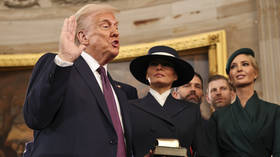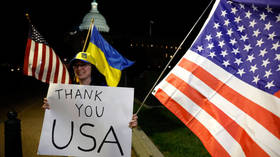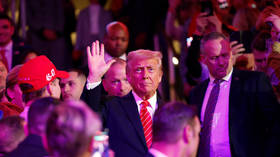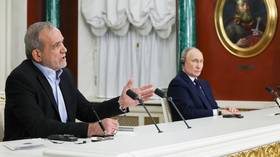US suspects $1.3 TRILLION in dirty money may have been laundered through Deutsche Bank over two decades
Germany’s largest lender, Deutsche Bank, is reportedly suspected by the US of facilitating more than half of the $2 trillion of suspicious transactions that were flagged by the US government between 1999 and 2017.
According to broadcaster Deutsche Welle (DW), some $1.3 trillion of $2 trillion in leaked transactions that occurred between 1999 and 2017 and were flagged as suspicious passed through Deutsche Bank. DW cited documents obtained by BuzzFeed News and shared them with the International Consortium of Investigative Journalists.
The documents revealed that five major banks (Bank of New York Mellon, Deutsche Bank, HSBC, JPMorgan and Standard Chartered) processed trillions of dollars of transactions identified as suspicious.
The activity reports that banks and other financial institutions filed with the US Department of Treasury’s Financial Crimes Enforcement Network, or FinCEN, showed that the megabanks continued to profit from powerful and dangerous players even after US authorities fined the financial institutions for earlier failures to stem flows of dirty money.
Also on rt.com JPMorgan & top global banks moved trillions in dirty money for oligarchs & criminal networks - ICIJ reportDeutsche Bank said in a statement that the incidents in the leaked documents “have already been investigated and led to regulatory resolutions in which the bank’s cooperation and remediation was publicly recognized. Where necessary and appropriate, consequence management was applied.”
Deutsche added that it has “devoted significant resources to strengthening our controls” and is “very focused on meeting our responsibilities and obligations.”
The bank was previously found to have facilitated financial transactions that violated US sanctions. According to DW, in 2015 Deutsche agreed to pay fines worth $258 million for doing business with US-sanctioned countries including Iran, Syria, Libya, Sudan and Myanmar. However, the leaked FinCEN documents suggested that the bank had continued to move suspicious funds after that 2015 settlement.
For more stories on economy & finance visit RT's business section













